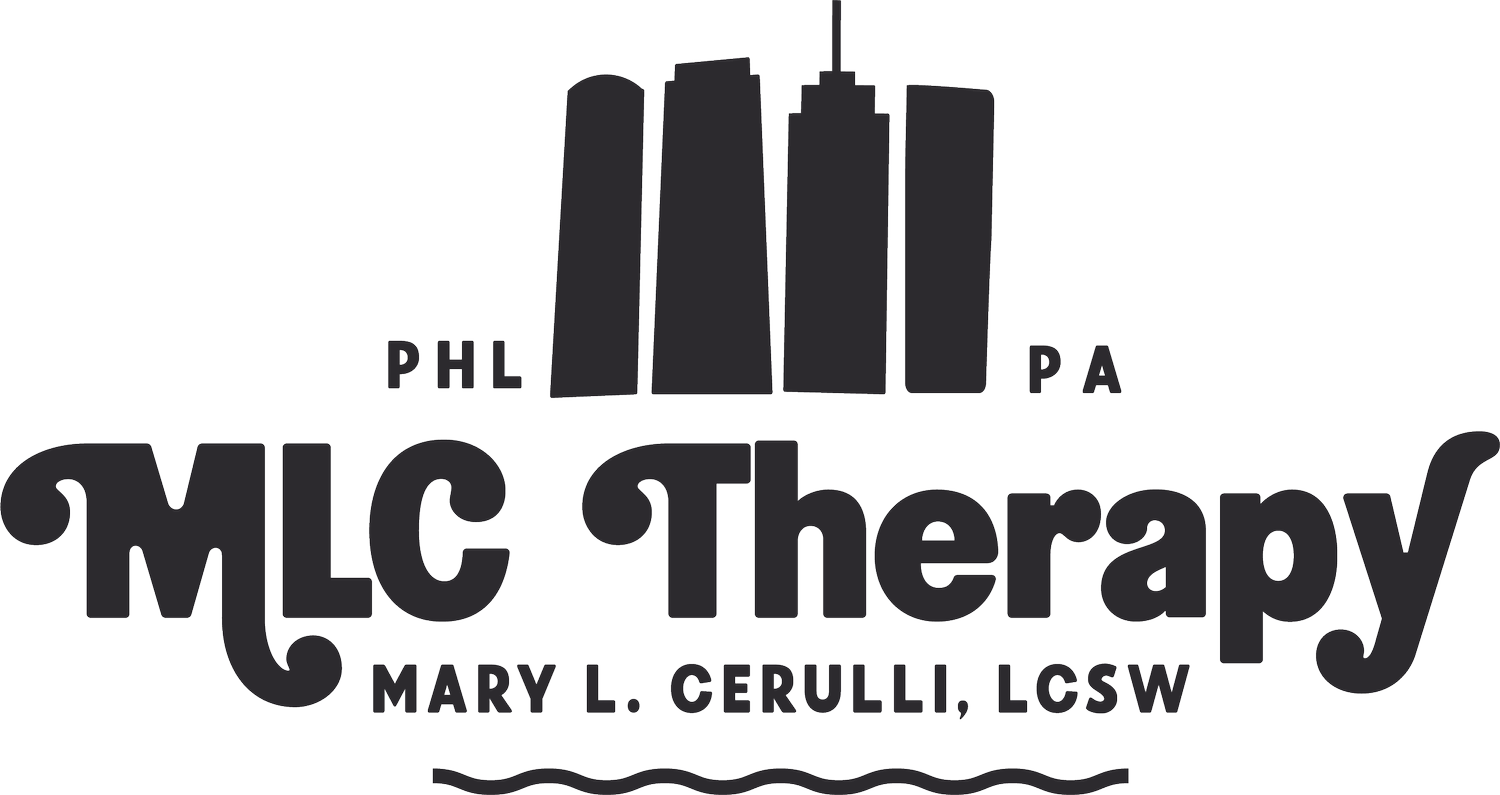Private Practice Therapy
Trauma therapy for health care workers, educators, & other care professionals
Philadelphia & Pennsylvania
Mary L. Cerulli, LCSW
Approaches to therapy
Relational
Understanding experiences of attachment, caregiving, and patterns that show up in personal relationships is the foundation of relational therapy. Processing in-the-moment experiences in session can be a powerful way to work with these patterns.
Collaborative
Your needs, preferences, and experiences are important. Working together, figuring out what works for you, and honoring your priorities is a crucial part of affirming, empowering care. This doesn’t mean you have to have it all figured out before you start though!
Trauma-informed
Using trauma theories and somatic principles, therapy can offer opportunities to mentally, emotionally, and experientially connect with yourself. This might include working with protective reactions and processing painful experiences. Trauma therapy can be a place of exploration, witnessing, release, and change.
LGBTQIA+ Affirming
Finding your way to an authentic relationship to sexuality and gender can include so many different experiences. Affirming therapy welcomes all of those experiences and all of YOU. Therapy can also be a place to process the impact of homophobia and transphobia and celebrate joy, community, and authenticity.
(Some) things to expect from therapy
Exploring emotions, moods, & actions to develop strategies to care for yourself through ups and downs
Processing important, stressful, and/or traumatic experiences, their impact on you, and what healing means for you
Identifying painful patterns in your relationship to yourself, work, & others in order to embody and practice changes that are meaningful for you
Unpacking the ways that systems of power and structures of oppression or privilege shape your internal and external experiences navigating various aspects of the world today
Building pathways to connect to with your body, your joy, your power, authentically and with more ease
Specializing in Care Work
Health Care
Education
Advocacy
Working in a care profession can be such a meaningful, fulfilling, and also exhausting role. Do any (or many) of these questions resonate with you?
Are you feeling anxious, overwhelmed, or burnt out in a care work profession?
Do you find yourself going above and beyond for others in your life and struggling to ask for help or set boundaries? Do your personal relationships feel chronically imbalanced?
Did you need to take on adult roles or responsibilities (emotional, logistical, financial, physical etc.) as a child? As an adult, is it sometimes challenging to fully relax, be playful, or feel good about yourself if you are not “being productive” or achieving?
Are you feeling frustrated or stuck with a caretaking role but unsure how else to connect?
Are there blocks, walls, or patterns of disconnection that happen when you want to be vulnerable or intimate with people in your life?
Are you feeling overwhelmed, furious, or powerless in navigating power structures that harm the people you work with and you as a provider?
Therapy can be a space to make connections between different parts of your life and build understanding as to what shapes your relationship to caregiving.
Therapy can support you in unlearning self-criticism and perfectionism, in finding more balance in your life, and in building more meaningful, interdependent relationships.
Therapy can help you contextualize the impact of systemic factors on your experiences, process grief and rage, and live more intentionally in your values.
* Note: While the above includes focus areas, these are not meant as requirements. If you are interested in working together based on other information, feel free to reach out!
It’s not easy to start (or restart) therapy
I’m glad you’re here.
The first step to working together is filling out the contact form.







